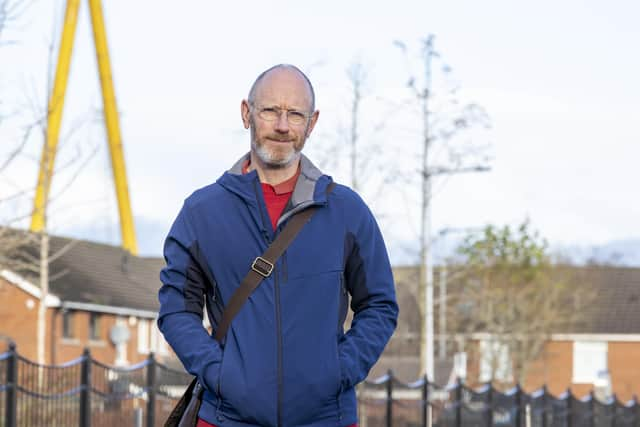Language group says 74 protestant soldiers in Great War spoke Irish
and live on Freeview channel 276
Many of the gaeilgeoiri from inner east Belfast who fought in the First World War were Protestant, the historical project found.
The 18-month trawl of military records and census data was undertaken by Turas, an organisation that promotes the Irish language within the Protestant community.
Advertisement
Hide AdAdvertisement
Hide AdProject leader Carmel Duggan said the findings challenge many perceptions about parts of east Belfast, suggesting a more positive attitude to Irish than might have been anticipated in working-class areas synonymous with the unionist tradition.


“There wasn’t the antagonism towards Irish at that point,” she said. “Political developments from about 1912 onwards began to change that and so, by the end of the war, Irish was then sort of marginalised to being the language of one community.
“And ironically, at the same time, the war became the property of another section. And I suppose that’s one of the interesting things about our project – it just sort of locates itself within that turning point in the history of the island, but also in the history of east Belfast.”
The project, which was supported by the National Lottery Heritage Fund, cross-referenced responses to the censuses of 1901 and 1911 with information contained in military records of Belfast soldiers compiled by local historian Jason Burke.
Advertisement
Hide AdAdvertisement
Hide AdHouseholders who completed census forms in the early 20th century were asked to state their proficiency in English and Irish.
Ms Duggan said intriguingly many responses from Protestants who said they could speak Irish had subsequently been crossed out by officials.
She said the reason for these alterations remains a mystery, but one theory is that it was a political attempt to conceal the prevalence of Irish within the Protestant community.
“It could have been deliberately suppressed in terms of the numbers, it could have been that it didn’t suit the politics of the day that there would be so many Irish speakers,” she said.
Advertisement
Hide AdAdvertisement
Hide AdRichard Guthrie, who learned Irish through classes run by Turas in east Belfast, was one of the 15 researchers on the project. He also played a key role in developing a website.
He said discovering the personal stories of the soldiers who fought and, in many instances, died in the war was an emotional experience.
“When you hear about the huge numbers who died it’s almost overwhelming, but it’s when you drill down to the individual and you hear the personal story that I certainly found very moving,” he said.